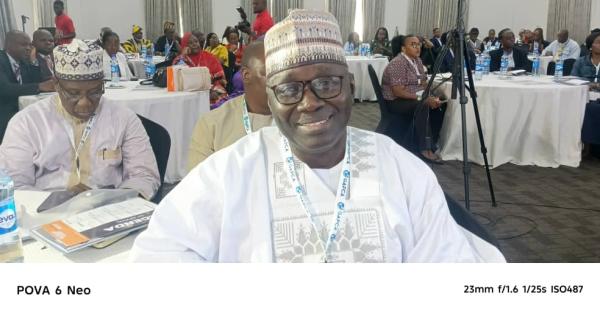
Pharm. Ibrahim Babashehu Ahmed, Honorable Registrar/CEO of the Pharmacy Council of Nigeria (PCN), has urged pharmacists, regulators and health-sector partners to urgently develop and revitalise pharmacy compounding across Nigeria — arguing that a strong compounding capacity is essential to medicine security, personalised care and professional renewal.
“Compounding continues to be a vital pillar of pharmaceutical care, allowing pharmacists to deliver individualized therapies that directly impact patient outcomes,” Pharm. Ahmed told delegates at the Maiden African Pharmacy Compounding Summit held on Thursday, October 9, 2025 at the Providence Hotel, Ikeja GRA, Lagos.
The summit — organised by the Centre for Pharmacy Practice Innovation & Optimization (CENPITOP) and the Global Alliance for Pharmacy Compounding in Africa (GAPCA) — brought together pharmacists, regulators, clinicians, researchers and industry stakeholders to discuss the future of compounding on the continent.
Pharm. Ahmed framed compounding as both the origin and a potential future of pharmacy practice: where the science of medicines meets the art of individualised care. He recalled how compounding stepped forward during the COVID-19 pandemic — supplying hand sanitisers, oral formulations and other urgent preparations when global supply chains failed — and argued that such adaptive capacity must be institutionalised rather than treated as an ad hoc response.
But, he warned, compounding must be safe. “Compounding is indispensable, but it must be carried out with uncompromising adherence to quality, safety, and efficacy,” he said, calling for clear regulatory standards and rigorous Good Compounding Practice across hospital and community settings.
Pharm. Ahmed also referenced recent strategic engagements aimed at securing institutional support for the PCN’s compounding vision, including high-level discussions with the Presidential Initiative for Unlocking the Healthcare Value Chain (PVAC), and the presentation of a memorandum in September proposing collaborative action to scale up compounding capability nationwide.
The PCN Registrar set out a three-part ambition for compounding in Nigeria —sustainability, pharmaceutical-care integration, and innovation and growth —and mapped six strategic dimensions to achieve it, among them: restoring pharmacy’s identity as both a science and an art; expanding clinical relevance for paediatrics, geriatrics, oncology and rare diseases; driving practice-driven research and new formulation development; strengthening multi-sectoral collaboration (including with NAFDAC and tertiary institutions); unlocking economic and professional opportunities; and improving public trust through demonstrable patient outcomes.
“Our vision for compounding in Nigeria is bold yet simple: to build a sustainable, patient-centered, and innovation-driven practice that expands the boundaries of pharmacy, strengthens healthcare delivery, and restores the pharmacist to their rightful place as a therapeutic designer and indispensable caregiver,” Pharm. Ahmed said.
The Registrar urged regulators, academia, industry and development partners to treat compounding as a strategic element of Nigeria’s medicines security and universal health-care agenda. He called for accreditation pathways, targeted training, facility upgrades in hospital pharmacies, and clear regulatory guardrails that protect patients while enabling practice innovation.
The summit, billed as the maiden continental forum on compounding, is part of a growing effort by professional bodies and regulators to reposition pharmacy practice for emerging clinical needs and supply-chain fragilities. PCN’s recent collaborations and public communications underline the regulator’s intent to mainstream compounding through policy direction, stakeholder engagement and technical partnerships.
Concluding his address, Pharm. Ahmed framed revitalisation as a national necessity, not nostalgia: “Let us revitalize compounding, not as an option, but as a mandate — for the health of our patients, the growth of our profession, and the resilience of our nation.”






















